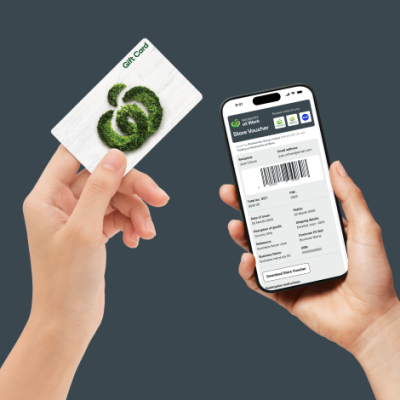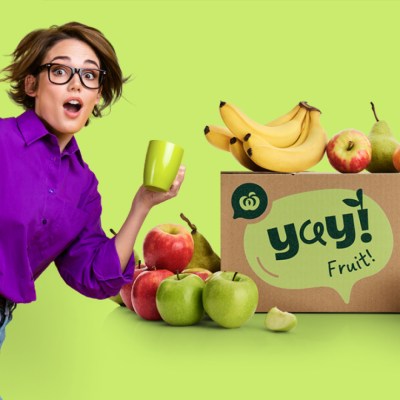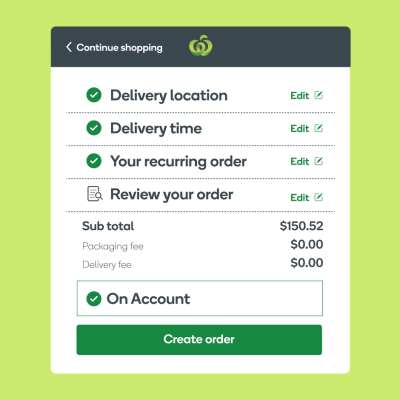When it comes to creating a more sustainable future for our children, even tiny changes can make a big impact.
Making your early childhood network, practices and curriculum more sustainable can seem like a big responsibility, but even the smallest tweak can have a huge impact.
Climate change is one of the most pressing issues facing our world today. So, when early childhood education and care (ECEC) services promote sustainability, children learn valuable lessons about protecting their planet and pick up more sustainable habits from an early age.
The importance of sustainability in early childhood education
Taking care of our environment and reducing waste has never been more important. One of the ways we can do this is to teach our youngest citizens how easy (and fun) it is to be more sustainable. Every tiny bit can make a big difference, and the steps we take now will help create a better tomorrow for future generations.
Sustainability checklist for directors, educators and carers
When you go the extra mile to help the environment and teach kids to do the same, the benefits of sustainability in early childhood are endless. Luckily, there are lots of simple ways to develop a simple sustainability plan in ECEC settings, including:
- Partnering with suppliers who are committed to sustainable practices
- Building and promoting sustainable kids activities and responsibilities
- Displaying simple, colourful posters about the environment
- Reading books with waste reduction and sustainability themes
- Putting a fun and effective recycling and compost system in place
- Encouraging children to save water
- Using environmentally friendly products
- Ensuring your educators practice green behaviours
- Inviting families to bring in old materials for craft
Sustainability activities for early childhood
One of the best ways of embedding sustainable practices in early childhood is through fun and engaging activities, like:
- Creating a veggie garden that the children can help out in and that you can use for meals and snacks.
- Taking children on excursions to sustainable places such as the local community garden, waste recycling plant and nearest nature walk.
- Chatting about and researching native wildlife with the children to help them understand how their actions affect the environment and other living creatures.
- Participating in Clean Up Australia Day.
- Collecting nature items like bark, leaves and rocks to create collages, craft and use in imaginative play.
Find out how we can help you embed more sustainable practices in your ECEC setting.
How Woolworths at Work is becoming more and more sustainable
We are committed to growing greener every day. We are cutting emissions, eliminating food waste, reducing plastic and sourcing responsibly. These are just some of the ways we are becoming more and more sustainable:
The Odd Bunch range
- Fruit and veg that would otherwise be thrown away because of their odd shape or size is packaged and sold.
- Since 2015, Woolworths customers have rescued millions of kilos of ‘The Odd Bunch’ fruit and vegetables from landfill.
Green delivery windows
- Our Green delivery windows reduce the overall distance our vehicles travel and help us reduce the carbon footprint of your delivery.
Sustainable packaging options
- Our packing options include reusable, recyclable or recycled materials
- With our Bagless to Bench service1, we’ll pack your order directly into our delivery crates and unpack it on your bench without the need for unnecessary packaging.
- You can also purchase reusable paper bags made from 70% recycled paper, sourced responsibly, as certified by the Forest Stewardship Council.
Commitment to plastic reduction
- Since 2018 Woolworths has removed 9 billion plastic bags out of circulation and 9000 tonnes of plastic since 2017.
- We strive to make 100% of our Own Brand packaging reusable, recyclable or compostable.
Food waste reduction targets
- We are working towards zero food waste to landfill by 2025
- We make overripe bananas into Woolworths banana bread and send 50 cents from every loaf sold straight to OzHarvest.
Net zero deforestation targets
- We are targeting net zero deforestation for Own Brand commodities like palm oil, timber and paper by 2025.
Sustainability certification
- 100% of our Own Brand tea, coffee, sugar and chocolate blocks, tissues, toilet paper and kitchen towels are sustainably sourced.
Find out more about Woolworths and Woolworths at Work’s sustainability efforts here.
Disclaimer:
1 Not available if you tick ‘Leave unattended’ at checkout. For food safety reasons, certain produce, chilled and frozen items will need to be packed into produce or reusable bags.



